They both have tentacles, ink, and serious escape skills, but octopuses and squids are surprisingly different once you get past the surface.
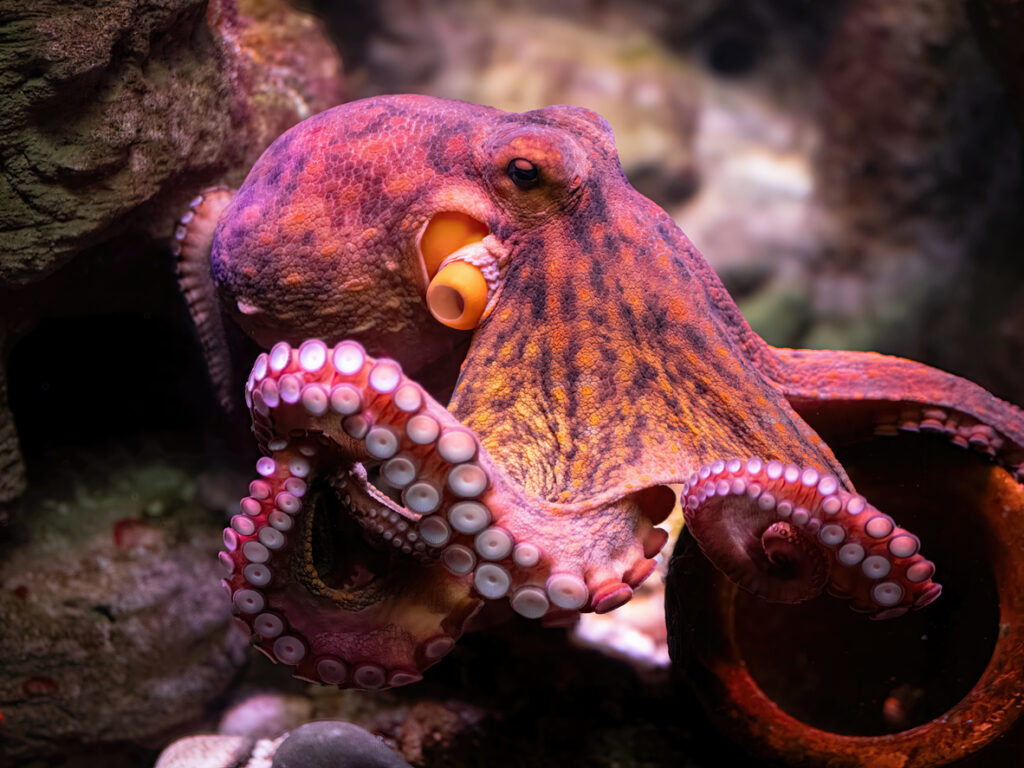
You might be able to figure out which is which by sight (most of the time, anyway), but beyond that, there are numerous qualities, abilities, and elements of physiology that set these two incredible creatures apart. Here’s what separates these underwater brainiacs, and why it’s worth telling them apart.
1. Octopuses have eight arms; squids have ten.
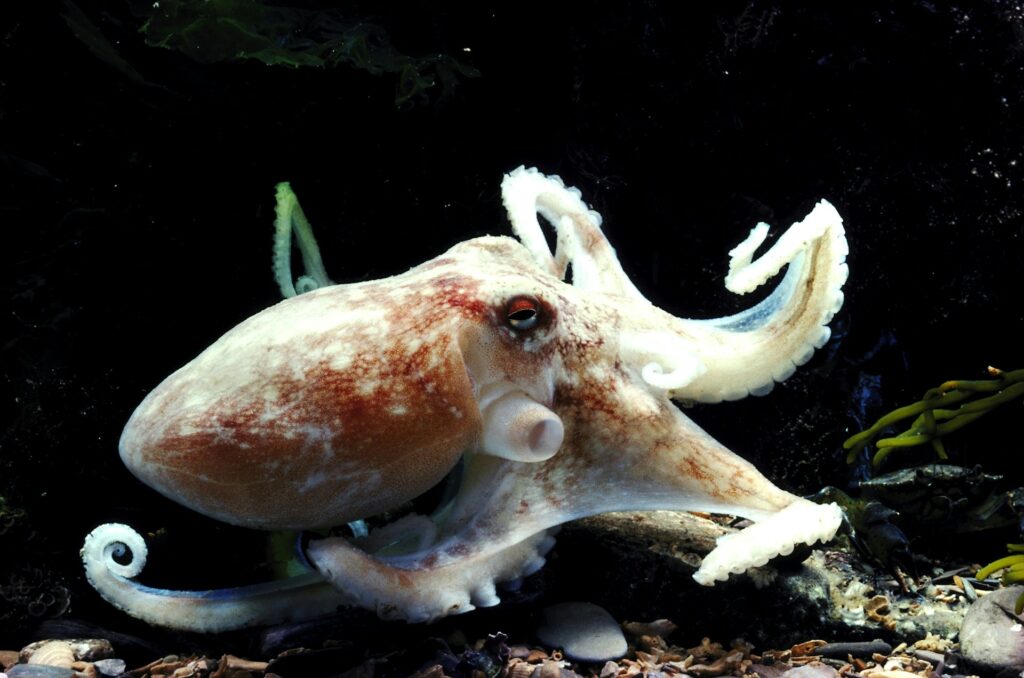
At a glance, they both look like floating blobs with limbs, but count closely, and you’ll notice something big: octopuses have eight arms, while squids come equipped with ten—eight arms and two longer tentacles.
Those extra tentacles on a squid are used for grabbing prey quickly, like built-in fishing lines. Octopuses, on the other hand, rely entirely on their shorter arms, which are super flexible and packed with suckers.
2. Squids are built for speed, octopuses for sneaking.
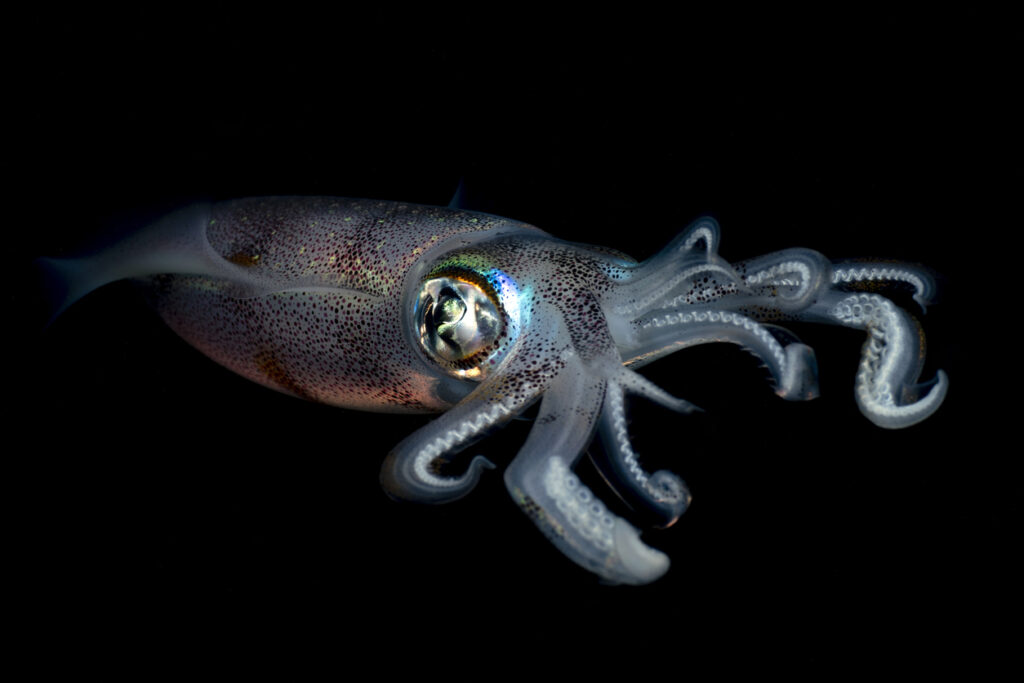
Squids have torpedo-shaped bodies and fins that help them glide fast through open water. They’re built like little rockets, with jet propulsion that lets them escape predators in a flash.
Octopuses are slower and more deliberate. They prefer to crawl, squeeze, and sneak their way through rocks and crevices. When they do swim, it’s usually as a last resort—not their go-to move.
3. Octopuses live solo, while squids roll in groups.
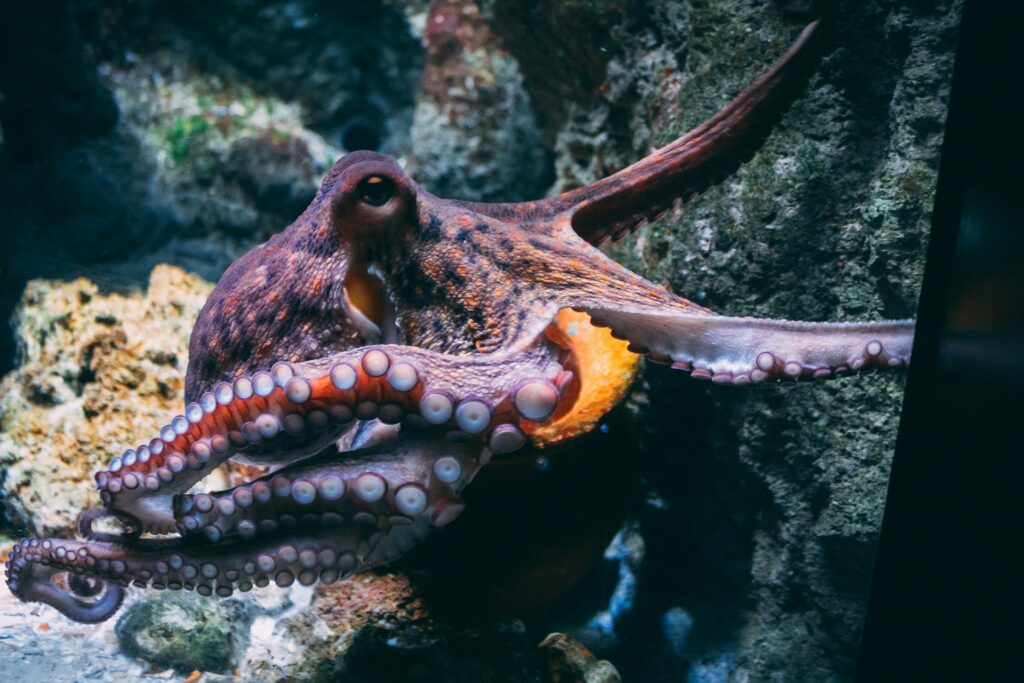
Octopuses are famously introverted. They’re solitary by nature and usually live tucked away in dens or rocky hideouts, minding their own business and avoiding social contact whenever possible.
Squids, on the other hand, are much more social. Many species travel in schools and communicate using quick changes in colour. They’re the extroverts of the cephalopod world, whether they like it or not.
4. Their bodies give them away.

If you’re trying to ID them visually, body shape helps. Octopuses have soft, rounded heads and no internal skeleton, so they can squish through absurdly tiny spaces without issue.
Squids have a more structured body, including a stiff internal “pen” made of chitin. Their heads are more arrow-shaped, and their long, tapering bodies look built for speed and structure.
5. Octopuses are escape artists.

Octopuses have an almost mythical ability to escape enclosures, unscrew lids, and solve puzzles. They’ve been filmed opening jars, slipping through one-inch gaps, and even breaking out of aquariums for secret nighttime adventures.
Squids are smart too, but they don’t quite match the same level of cunning. Octopuses seem to think their way out of problems—squids tend to swim away from them, fast and flashy.
6. Their ink has different uses.
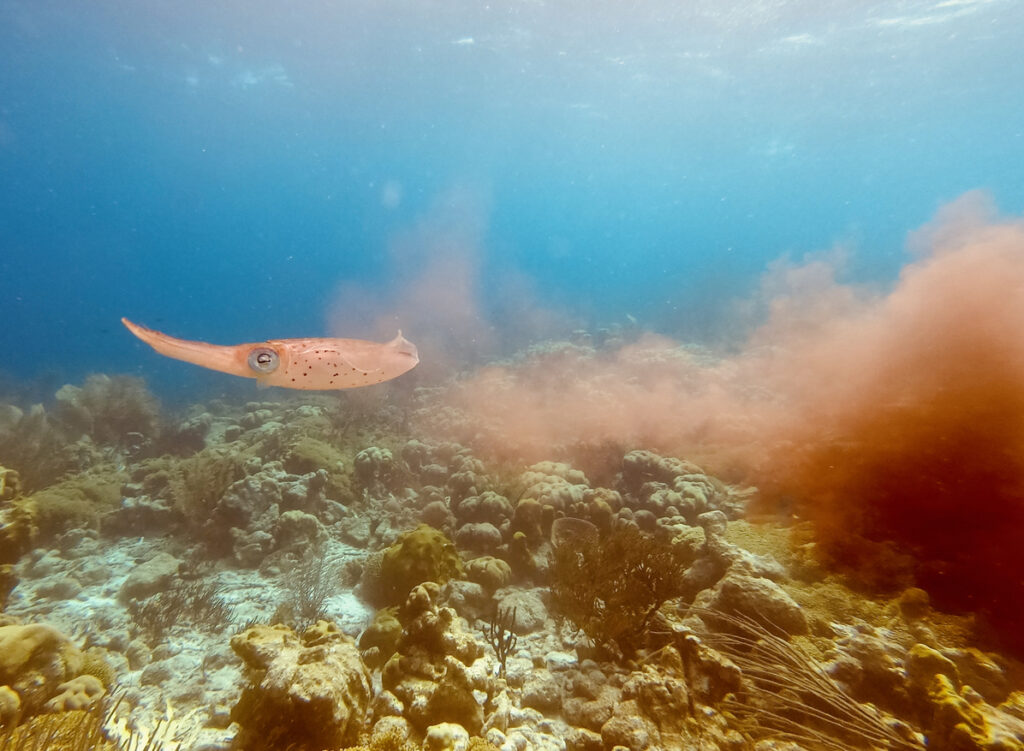
Both animals use ink defensively, but they do it differently. Octopuses create a thick cloud of ink to obscure themselves and escape—it’s all about creating confusion and buying time.
Squids use their ink more like a smokescreen, sometimes adding mucus to make a decoy blob called a pseudomorph. It tricks predators into striking the wrong thing, giving the squid a clean getaway.
7. Their brains are wired differently.
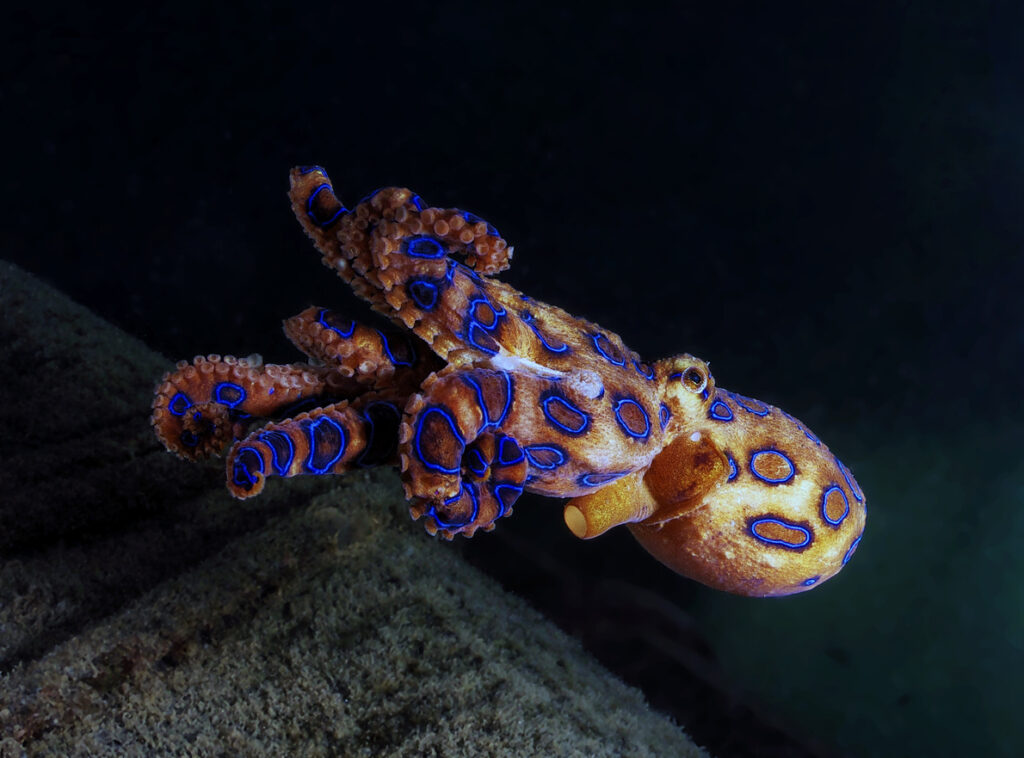
Octopuses have an incredibly complex nervous system, with most of their neurons actually distributed through their arms. Each arm can act semi-independently, which is why they seem to multitask so well.
Squids have more centralized brains, which makes them better at coordinating high-speed swimming and group communication. Both are clever—but their intelligence is wired for different lifestyles.
8. Octopuses are better at camouflage.
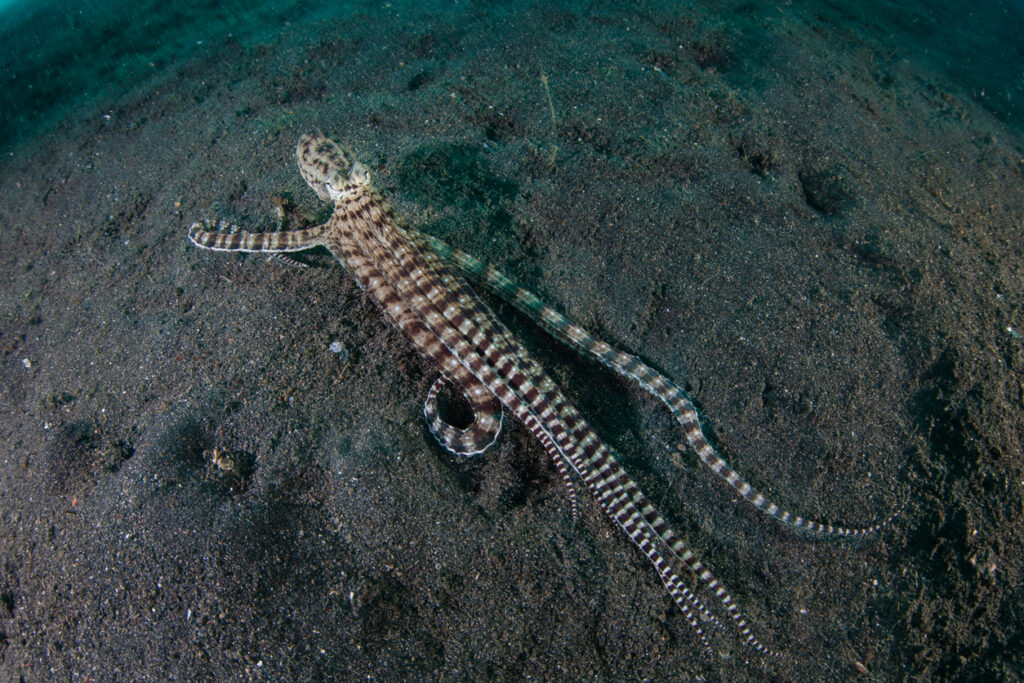
Squids can change colour, but octopuses are the true masters of disguise. They can shift both their colour and skin texture to blend into sand, rocks, coral—whatever’s nearby.
Some species, like the mimic octopus, even impersonate other sea creatures to stay safe. It’s not just hiding—it’s acting. Squids are flashy, but octopuses are theatre-level shape-shifters.
9. Squids are more commonly eaten.
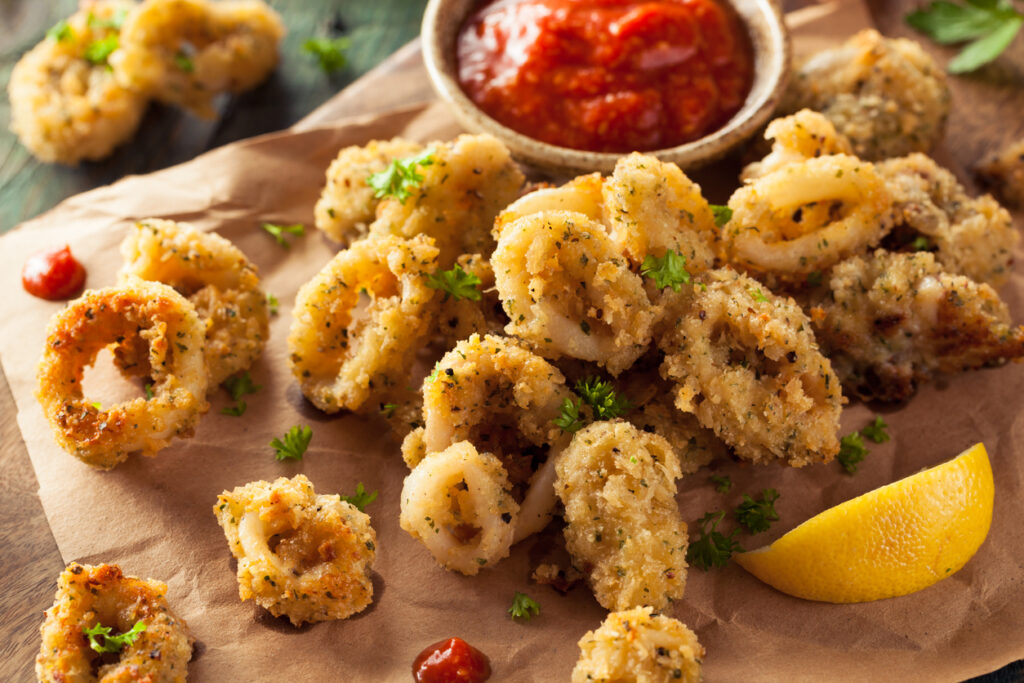
Calamari? That’s squid. Around the world, squid is far more common in cuisine than octopus. It’s mild, tender when cooked right, and harvested in huge numbers from open waters.
Octopus is eaten too, especially in places like Japan, Greece, and Spain, but it’s often considered a more specialised delicacy. Plus, their intelligence makes many people pause before putting them on a plate.
10. They evolved from a common ancestor, but took different paths.

Octopuses and squids both come from ancient cephalopod ancestors, but millions of years of evolution pushed them in different directions. Octopuses went full soft-bodied and reclusive. Squids went sleek, fast, and social.
Despite their differences, they’re still part of the same incredible group of animals known for intelligence, adaptability, and that undeniable alien vibe. They’re not rivals—they’re just brilliant in their own separate ways.